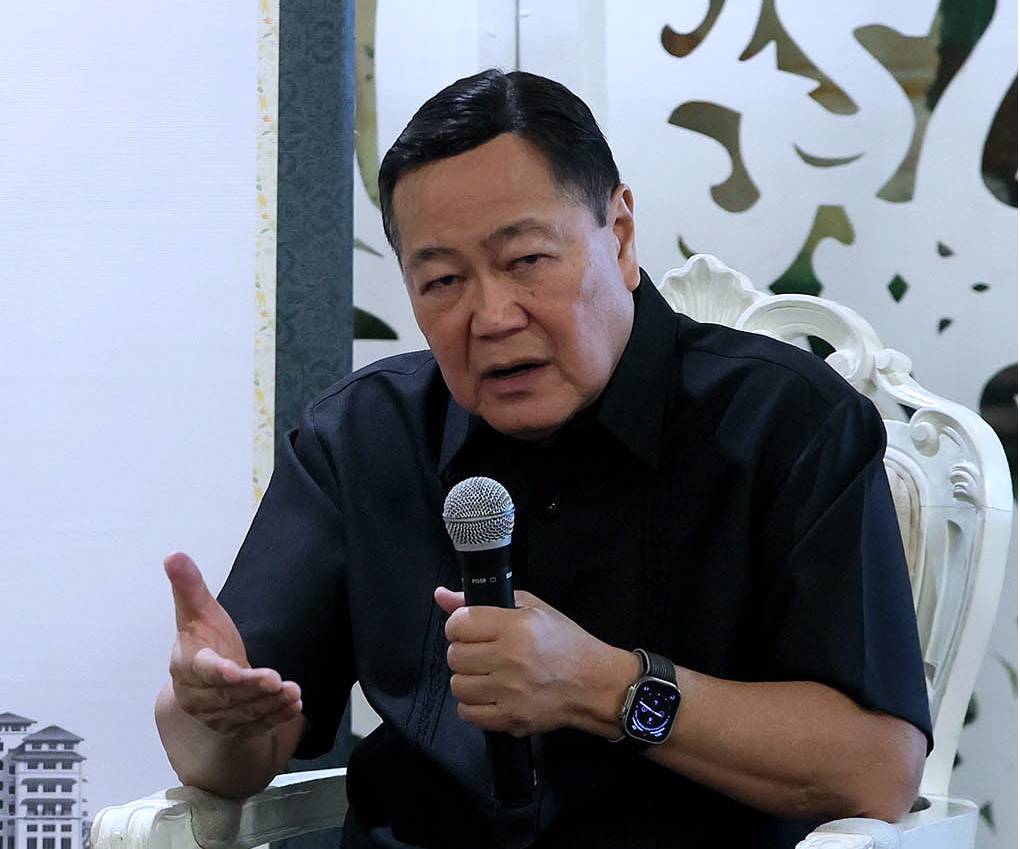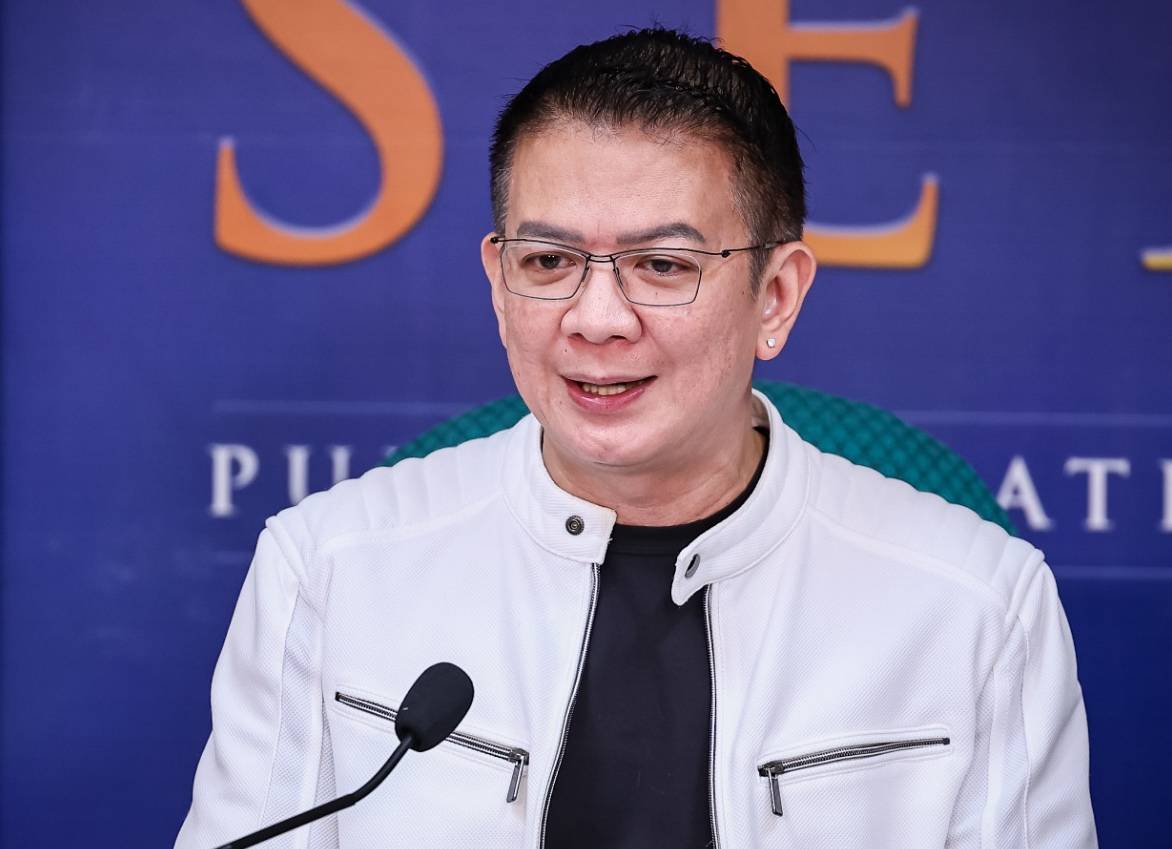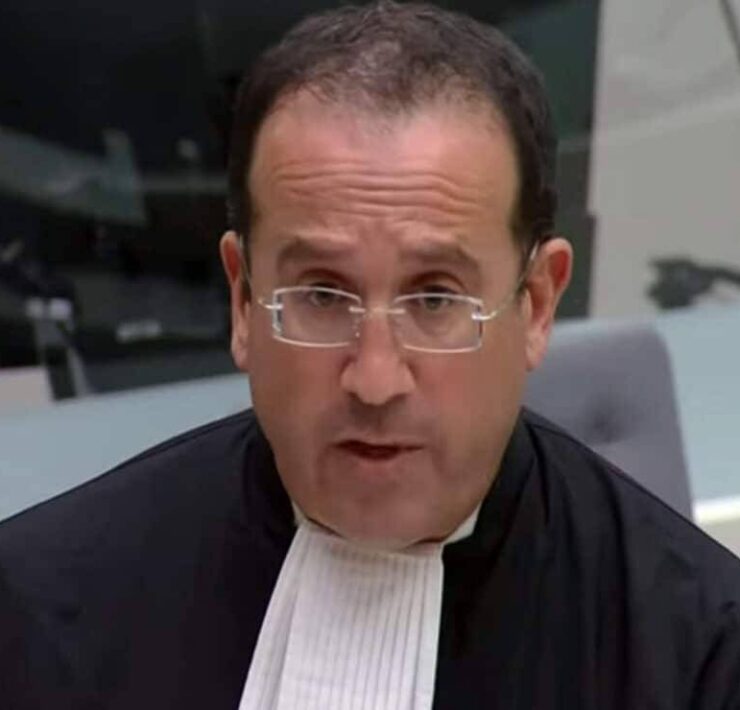CARPIO: SPECIAL SESSION POSSIBLE FOR GAA, VP TRIAL

- Carpio says the Senate can still convene and proceed with the impeachment trial of VP Sara Duterte if President Marcos calls a special session for Congress to enact an urgent law.
- Once in session, senators can convene an impeachment court. But Carpio concedes that even if a special session is called, the Senate may still be pressed for time.
- Senate President Francis Escudero has no intention of asking President Marcos to call a special session, saying that he doesn’t want to treat the impeachment trial as a special case. President Marcos earlier said that he would only call a special session if requested by the upper chamber.
The Senate can still convene and proceed with the impeachment trial of Vice President Sara Duterte if it has the “will” to do so, retired Supreme Court Senior Associate Justice Antonio Carpio said on Sunday.
Speaking at a media forum, Carpio explained that while the upper chamber is currently adjourned and has argued that it could not convene without being called into session, legal and procedural paths could allow it to move forward.
For one, President Marcos could call a special session for Congress to enact an urgent law, such as amending the General Appropriations Act (GAA), particularly the zero allocation for the Philippine Health Insurance Corp. or the budget for the Armed Forces of the Philippines modernization program, Carpio said.
“That can be done. [The President] can say, ‘I will give you 25 days to convene a special session.’ Amending the GAA is easy, so they have an extra 20 to 24 days. Even in just 20 days, it can be done. So, they can now convene an impeachment court because there is a session. That’s one way to do it,” Carpio explained.
Allies of former President Rodrigo Duterte on Jan. 27 questioned the budget before the Supreme Court, particularly what they claimed to be blank items in the General Appropriations Bill. The high court on Feb. 4 asked the executive department and Congress to comment on that petition.
But Carpio conceded that even if a special session is called, the Senate may still be pressed for time since a respondent has 10 calendar days to submit their comment or answer.
“That is a long time, 10 calendar days. So you will not have a lot of time left in those 20 days,” Carpio said.
To save time, he suggested that witnesses submit judicial affidavits to simplify cross-examination.
“That can be done. Three days for the prosecution, three days for the respondent, if you have a judicial affidavit. I think it can be done if there’s a will,” he added.
Not a special case
On Sunday, however, Senate President Francis Escudero said he had no intention to request President Marcos to call a special session to start the impeachment trial.
“Will that request come from me? No. Because, as I’ve said, I don’t want to treat this as a special case, because I don’t want to be criticized for rushing this issue as compared to the other previous impeachment complaints,” Escudero said in an interview over radio dzBB.
Mr. Marcos earlier said that he would call a special session only if requested by the upper chamber.

Escudero reiterated that there was no reason to expedite the trial while Congress was in recess, as he noted that previous impeachment cases were not expedited.
“Duterte is not special. The position of the Vice President is not special for us to rush her impeachment trial, just as we did not hasten proceedings for the Chief Justice or the Ombudsman. All impeachable officers must be treated equally under the Constitution,” he noted.
Public document
Escudero stressed the need to be diligent in studying the impeachment complaint and in preparing for the formal trial later on even as some sectors expressed disappointment over the seeming lack of action by the Senate.
“In a political process like impeachment, there would always be a sector that would be dismayed. We can’t do anything about it,” he said. “In the end, we will decide, not to make one party happy, but one that is based on the process and evidence.”
He added that no one among his colleagues in the Senate has so far pushed for the conduct of a special session or asked that they request the President to call for one.
In the same manner, the Senate leader said Mr. Marcos has also not expressed any intention to call a special session for the impeachment trial of Duterte.
“No indication from the President. But of course, if he calls for a meeting, we will attend,”he added.
Escudero also said he has ordered the posting of the articles of impeachment—a public document—on the Senate website so it could be viewed by the public.
Constitutional provision
In the lower chamber, a member of the House of Representatives’ 11-member prosecution team also maintained that they were not rushing the Senate to convene as an impeachment court.
Deputy Majority Leader Lorenz Defensor pointed out that a prosecutor would never dictate on a judge to begin proceedings, but asserted that it is the 1987 Constitution stating that the impeachment trial should proceed “forthwith.”
In an interview on dzBB’s “Bantay Balita sa Kongreso” on Sunday, Defensor said an impeachment complaint against a high-ranking official in the country involves national interest.
“The Constitution itself states that the trial shall forthwith proceed. Why does the Constitution say that? Because if a high-ranking official has done wrong, [the wrongdoing] should be stopped, the trial should begin for us to determine if that official should continue to be an official, as a President, Vice President or as a Supreme Court justice,” he explained.
“We are leaving it up to the Senate. As early as now, we want to treat the Senate as an independent constitutional and impeachment court. And if you’re a prosecutor or lawyer, you don’t tell the judge, ‘Let’s start the hearing at once.’ You will really wait for when the judge will set the hearing,” Defensor said.
Two views
According to an impeachment primer by the University of the Philippines College of Law, there are two views on whether the Senate can proceed with the trial while in recess.
One argues that it must wait until the session resumes, as was done in past impeachment cases.
During the Estrada impeachment trial (2000-2001) and the Corona impeachment trial (2012), both proceedings were suspended while the Senate was in recess.
“If this were the case, the Senate can only conduct the impeachment trial of [Duterte] when it resumes session after June 2, 2025, unless it is called into a special session by the President pursuant to Article VI, Section 15 of the Constitution,” read the document prepared by assistant professor Paolo Tamase and his team.
The other view asserts that the Senate “can and should hold trial immediately” even when Congress is not in session.
It cited Article IX, Section 3(4) of the Constitution, which orders that “trial by the Senate shall proceed forthwith,” suggesting urgency.
“Further, ‘sessions’ in the Constitution are legislative in character, and in practice, non-legislative or preparatory work continues even when Congress is adjourned. In that light, impeachment is not a legislative function, and the power to try impeachment cases can be exercised even when session is suspended,” the primer read.
The impeachment complaint against the Vice President, signed by 215 lawmakers, accuses her of culpable violation of the Constitution, bribery, graft and corruption, betrayal of public trust, and other crimes, including the alleged misuse of up to P612.5 million in confidential funds for her office and the Department of Education when she was secretary. —WITH REPORTS FROM JEANNETTE I. ANDRADE AND INQUIRER RESEARCH





















